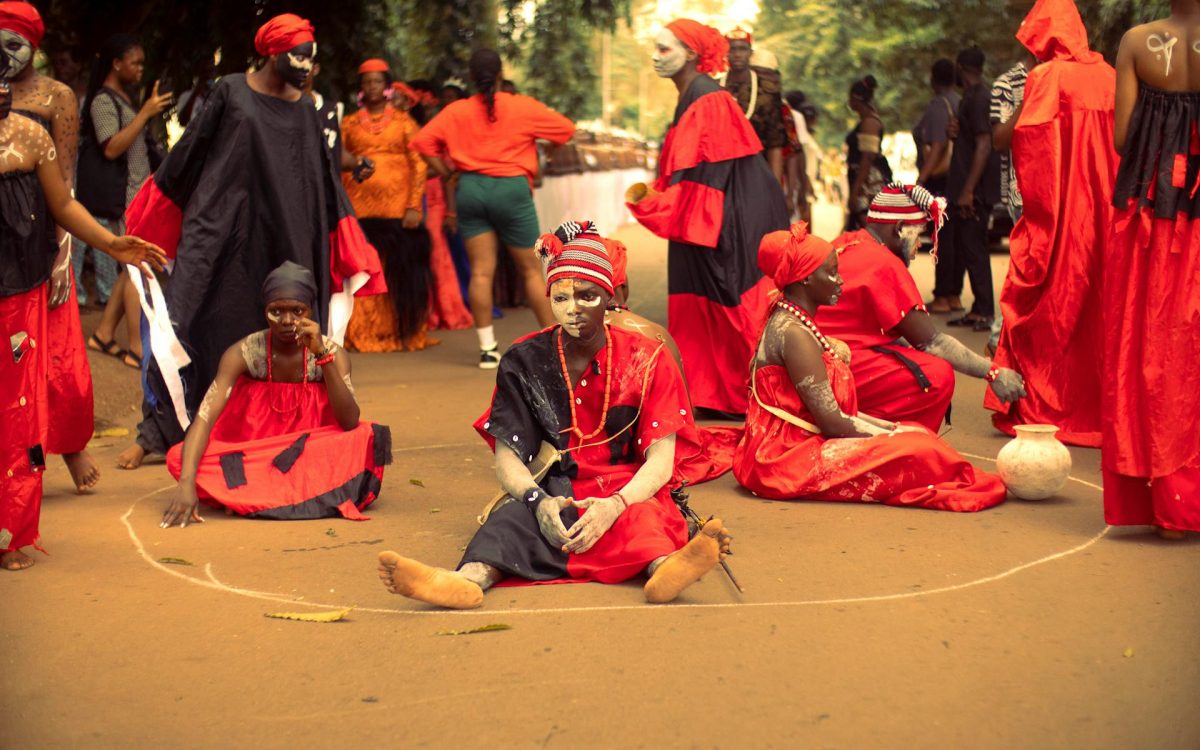We All Need the Wisdom of African Traditional Religion
 African Traditional Religion (ATR) has recently been the subject of hot debate among young Nigerians on social media. The debate pits two groups against each other, both shaped by the void left by an attempt to erase the indigenous spiritual systems by colonialism. On one side are pro-ATR advocates, predominantly youths disillusioned by Christian theology’s neglect of ATR’s core values. On the other hand, anti-ATR voices, often young Indigenous Nigerian Christian missionaries, are waging a crusade against the persistent influence of ATR—a continuous reminder of their ancestral roots. Yet, while the pro-ATR camp risks romanticizing a past whose ethical frameworks they scarcely grasp, the anti-ATR group grapples with a colonial hangover caused by their Eurocentric theological education.
African Traditional Religion (ATR) has recently been the subject of hot debate among young Nigerians on social media. The debate pits two groups against each other, both shaped by the void left by an attempt to erase the indigenous spiritual systems by colonialism. On one side are pro-ATR advocates, predominantly youths disillusioned by Christian theology’s neglect of ATR’s core values. On the other hand, anti-ATR voices, often young Indigenous Nigerian Christian missionaries, are waging a crusade against the persistent influence of ATR—a continuous reminder of their ancestral roots. Yet, while the pro-ATR camp risks romanticizing a past whose ethical frameworks they scarcely grasp, the anti-ATR group grapples with a colonial hangover caused by their Eurocentric theological education.
Tracing the Roots: Colonialism and the Erasure of ATR
As the Igbo proverb teaches, “Ebe nwata na-ebe akwa na-atu aka, nne ya anoghi ya, nna ya anora ya” —where a crying child points, if the mother is absent, the father must respond. The tension raised by this debate signals a deeper crisis we must confront. Something deeply seated in the ATR keeps both groups profoundly engaged, either sheepishly or unquestioningly.
Indeed, as another Igbo proverb says: “Na o di mkpa i bu uzo mata ebe mmiri siri banye opi ugbogiri” — it is vital to trace the source of a problem before solving it. Historically, Christianity’s spread in Sub-Saharan Africa followed Europe’s colonial project, framed by Enlightenment-era rationalism and a self-assigned “saviour complex.” Nations like Britain cast themselves as a “new chosen race,” joining other European powers in their mission to “rescue” the world from their own invented darkness. So, backed by the Doctrine of Discovery, they went to the African shores with some beautiful theories on God and future glory and yet “eyes fixed on gold.”
Armed with this mindset, missionaries crossed the Mediterranean, not as equals but as conquerors of souls. They dismissed African cultures and knowledge systems, enacting a violent epistemic erasure that dismantled indigenous beliefs. As Chinua Achebe writes in Things Fall Apart:
“The white man is very clever. He came quietly and peaceably with his religion. We were amused at his foolishness and allowed him to stay. Now he has won our brothers, and our clan can no longer act like one. He has put a knife on the things that held us together, and we have fallen apart.”
The Legacy of Colonial Erasure
The tragedy lies in how this legacy persists through colonial practices of Christian faiths. However, youths yearning to reclaim ancestral traditions must remember another proverb: “A child who isn’t taught how to eat the land (etu esi eri ala) ends up swallowing sand.” Like Okonkwo returning to a transformed Umuofia in Achebe’s novel, we cannot naively resurrect a static past. We can no longer practice ATR as our ancestors did.
Our ancestors did not do it precisely the way previous ancestors did. On the other hand, those rejecting ATR must recognize that severing ties with indigenous spirituality is one of the significant true causes of our present destabilized society. As Achebe warns, “When things fall apart, the center cannot hold.”
A Path Forward: Integrating ATR and Modern Faith
Unfortunately, our current Christian model, burdened by colonial baggage, often ignores Africa’s spiritual heritage, clinging to foreign interpretations of divinity. To heal, we must reimagine faith at the intersection of traditions. For African Christians, this means exploring how ATR’s wisdom might deepen their understanding of Christ’s message.
The ancestral background of the theologian is their starting point. The way they interpret how God manifests Godself in their milieu, in line with the belief of their community of faith, is their theology. Thus, connecting to the rich values of ATR is the only way to have an authentic African theology for our people and our contribution to world Christianity.
Likewise, the pro-ATR advocates should find strong values in Jesus’ radical love and sacrifice—principles that resonate with ancestral virtues of community and resilience.
Healing Through Dialogue and Integration
The debate over African Traditional Religion is not just about faith — it’s about identity, history, and healing. Any African believer who thinks there is a way to Christianity that does not involve learning from our ancestral practices either loses their identity or wallows in ignorance. Ultimately, dialogue—not dogma—will chart the path forward. We can forge a spirituality that unites us by honouring our roots while embracing cross-cultural insights.
-
Facebook
-
Twitter
-
Linkedin
-
Whatsapp






